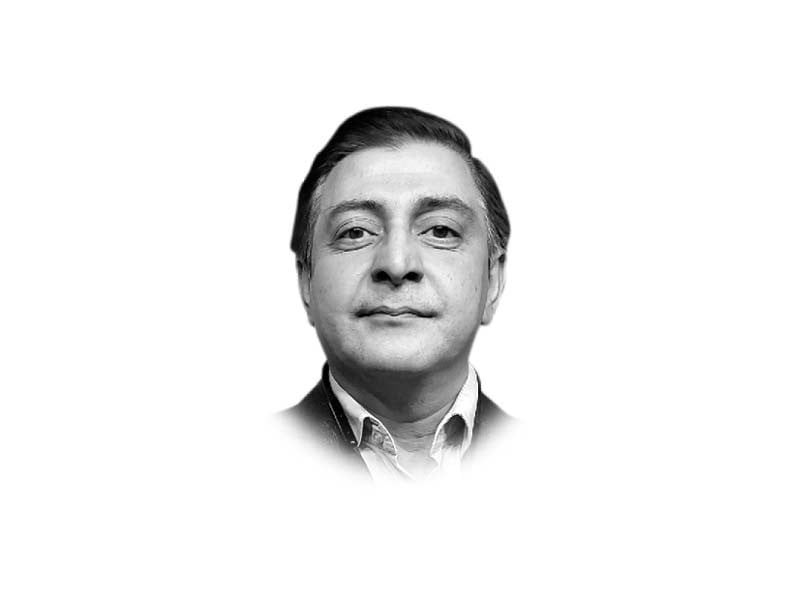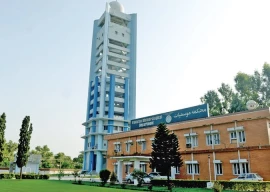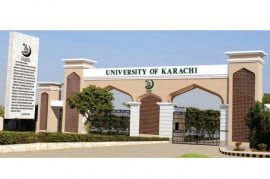
As the current political crisis unfolded and one by one the government’s erstwhile allied parties and dissident members chose their path, an anchor on a private channel asked an undecided member of the parliament whether he had made up his mind. The answer came in the negative. Deliberations were going on and when he arrived at a decision he would reach out to the media and break the news. Then the anchor asked something stunning. Would you first go to ARY or Geo to make the announcement? To most viewers the question was clear. But it was also a rare admission of the posttruth nature of the Pakistani media where one media outlet refuses to see either the government’s flaws or strengths. Opinion replacing objectivity.
But you will say what is new in that? In a country where both Zia and Bhutto are declared martyrs this is no new thing. Also, is it not increasingly true of the entire world? Fox and MSNBC, Sky and Channel 4? The world functions in binaries does it not? The like and unlike buttons. Upvotes and downvotes. Maybe. Maybe not. But here is the problem. You can try to escape responsibility by citing such examples but cannot shut your eyes to the threat such trends pose. For instance, even if these trends now appear old when coupled with the new or the unfixed they can wreak havoc. For instance, name another country whose citizens were radicalised to such an extent that they ended up killing eighty thousand fellow citizens, mostly co-religionists, in the name of faith. Similarly, the civil society (both secular and religious)’s treatment of the acts of terrorism perpetrated by the religious extremists and the sub-nationalist entities as two different realities is another case in point. An act of indiscriminate mass violence meant to terrorise the population can be called terrorism. Why should the perpetrator of any such act be treated as an estranged brother or sister?
This matter is important to highlight because owing to fifty years of state-sponsored piety and then twenty years of the war against the very same characters you once lionised the country has developed a soft underbelly of toxic if populist religiosity. This happened especially because at the time the crucial decision was taken to fight obscurantism and terrorism, there was no elected parliament in the country. Ergo no way to sell a legitimate policy shift to the people. Televised broadcasts can convince some people but they are no substitute for your elected representative reaching out to you deliberately and repeatedly to change your mind. As a result, a huge part of the religious-minded community either views the state’s agenda with apprehension or with hostility. This fact is further complicated by the small matter of there not being any concept of a nation-state in the doctrine of the state’s chosen religion. Political consensus and religious interpretation (ijtihad) had malfunctioned as institutions by the time nationstates emerged. Consequently, the muscle memory of its clergy always leads it to strive for the establishment of empires or khilafa directly undermining your nation-state. Not an empire centred around your capital, but the empire where your individuality merges and dies. So, in the past twenty years, everything has become my way or highway. Many in the religious elite see the Pakistani state as a liability and actively plot against it. This problem could be cured if there was an honest dialogue. The only challenge is that we are so polarised that from the parliament, the constitution to the free press we are ready to burn down every institution that provides us an avenue to resolve differences.
And political and business opportunism further exacerbate the crisis. Ours is not an ordinary state. It may find it harder to cope with the crises like the ones posed by Trumpism and the 1/ 6 attack.
They say that with age, experience and power comes wisdom. If that was so, the state functionaries both serving and retired would have been helping us use critical faculties rather than being swept by the emotionalism of the zeitgeist. Consider this. Even though one cannot spell it out in granular details everyone knows that at the heart of this political crisis lies the crisis of consensus within the state apparatus. That means that not only have we failed to evolve a mechanism in this country where such differences are resolved amicably but we are willing to make this crisis about a conflict between good and evil. Do you remember any country where such systemic inanity and opportunism has led to anything good or constructive? The Soviet Union collapsed because of this polarity.
Likewise, you may find many ex-officials who are so sentimental that the small matter of constitutionality does not matter to them. When you follow the opinions expressed around the ongoing crisis by many who retired after serving in high positions you are sorely dismayed. It is as if they do not even want to pretend that there is a constitution in the country or constitutionally mandated institutions whose job it is to function in a certain manner and in accordance with their constitutional mandate. What can motivate someone who has tasted the salt of the state to do something like that? Ignorance, obscurantism and passion. And who was supposed to shield the citizens from such elemental corrosion? Why the state itself. It is the responsibility of the state to imbue citizens with the desire to use critical thinking and believe in constitutionalism and institutionalism. As I have been shouting atop my voice for a decade and a half now there are no villains here. Only misunderstanding, ignorance and opportunism. But how will the state do this when its own functionaries both current and former allow the polarisation in the society to indoctrinate them? Vicious cycle? Ouroboros? In any case our fate seems sealed.
Let me take you back to the Cambridge Analytica expose by Channel - 4. One CA office-bearer bragged to the channel’s undercover reporters that elections are not won on the basis of the policy debates or rationality but on the basis of emotions. And the strongest of these emotions are fear, anger and hatred. Now these emotions may help you in winning elections and making money but they most certainly can destroy fragile states. Let us hope our state and society or at least the rich and powerful here realise that it is time to restore the proverbial middle ground. If not we are toast.


1725240104-0/Untitled-design-(4)1725240104-0-165x106.webp)


1725236112-0/Untitled-design-(3)1725236112-0-165x106.webp)








1725096749-0/Untitled-design-(1)1725096749-0-270x192.webp)


1725083820-0/Untitled-design-(24)1725083820-0-270x192.webp)


COMMENTS (5)
Comments are moderated and generally will be posted if they are on-topic and not abusive.
For more information, please see our Comments FAQ